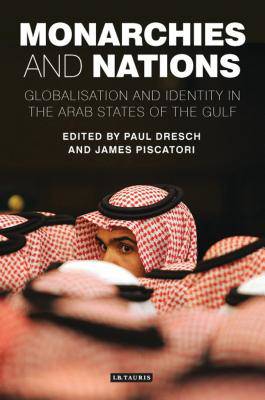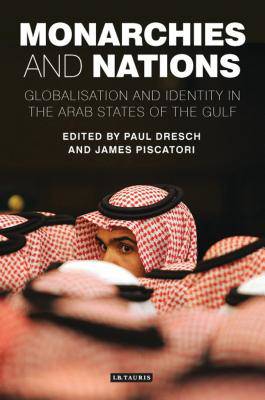
- Afhalen na 1 uur in een winkel met voorraad
- Gratis thuislevering in België vanaf € 30
- Ruim aanbod met 7 miljoen producten
- Afhalen na 1 uur in een winkel met voorraad
- Gratis thuislevering in België vanaf € 30
- Ruim aanbod met 7 miljoen producten
Zoeken
Monarchies and Nations
Globalisation and Identity in the Arab States of the Gulf
Paul Dresch, James P Piscatori
€ 55,95
+ 111 punten
Omschrijving
Despite their small populations, the Arab states of the Gulf exercise an enormous and wide-reaching influence. But all too often, these states are treated as if their only importance were as pawns in a global strategic board game, and they are simply dealt with as mere models of the intersection of oil, wealth and power. Here, Paul Dresch and James Piscatori bring together a more nuanced picture: exploring how the citizen populations of these states define themselves in a wider context. The Gulf provides extreme examples of the nexus of identities, not only because these polities are so dependent on transnational flows of wealth and its imagery, but because at home the citizen workforce is often outnumbered by migrant labour. Examining the issues such as Gulf-owned transnational media, the role of women in the Kuwaiti state and the way Saudi Arabia manages the yearly influx of pilgrims for the Hajj. Monarchies and Nations is essential reading for all those interested in the society, politics and the future security of the Gulf.
Specificaties
Betrokkenen
- Auteur(s):
- Uitgeverij:
Inhoud
- Aantal bladzijden:
- 320
- Taal:
- Engels
- Reeks:
Eigenschappen
- Productcode (EAN):
- 9781848858664
- Verschijningsdatum:
- 19/03/2013
- Uitvoering:
- Paperback
- Formaat:
- Trade paperback (VS)
- Afmetingen:
- 155 mm x 231 mm
- Gewicht:
- 430 g

Alleen bij Standaard Boekhandel
+ 111 punten op je klantenkaart van Standaard Boekhandel
Beoordelingen
We publiceren alleen reviews die voldoen aan de voorwaarden voor reviews. Bekijk onze voorwaarden voor reviews.








